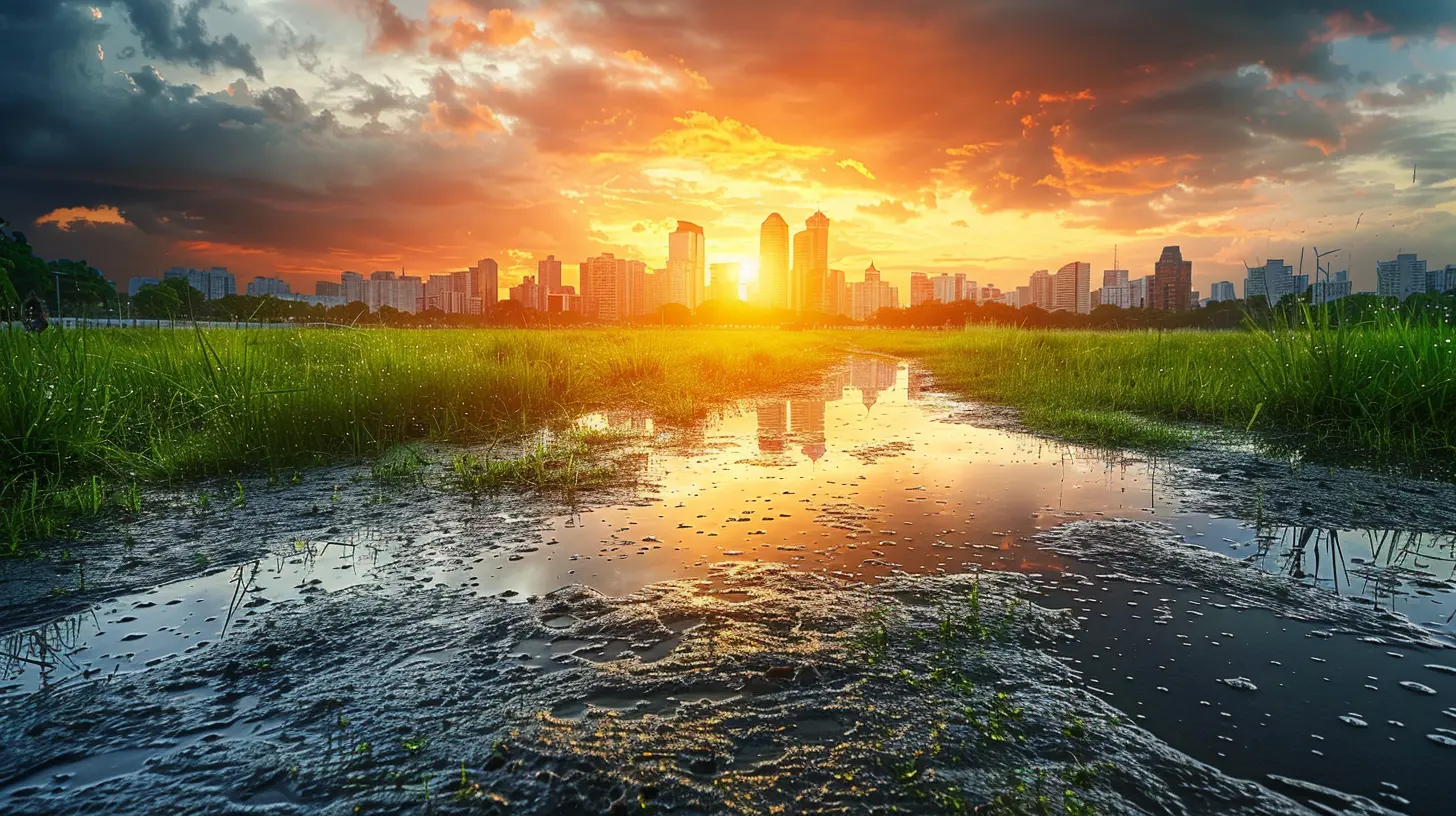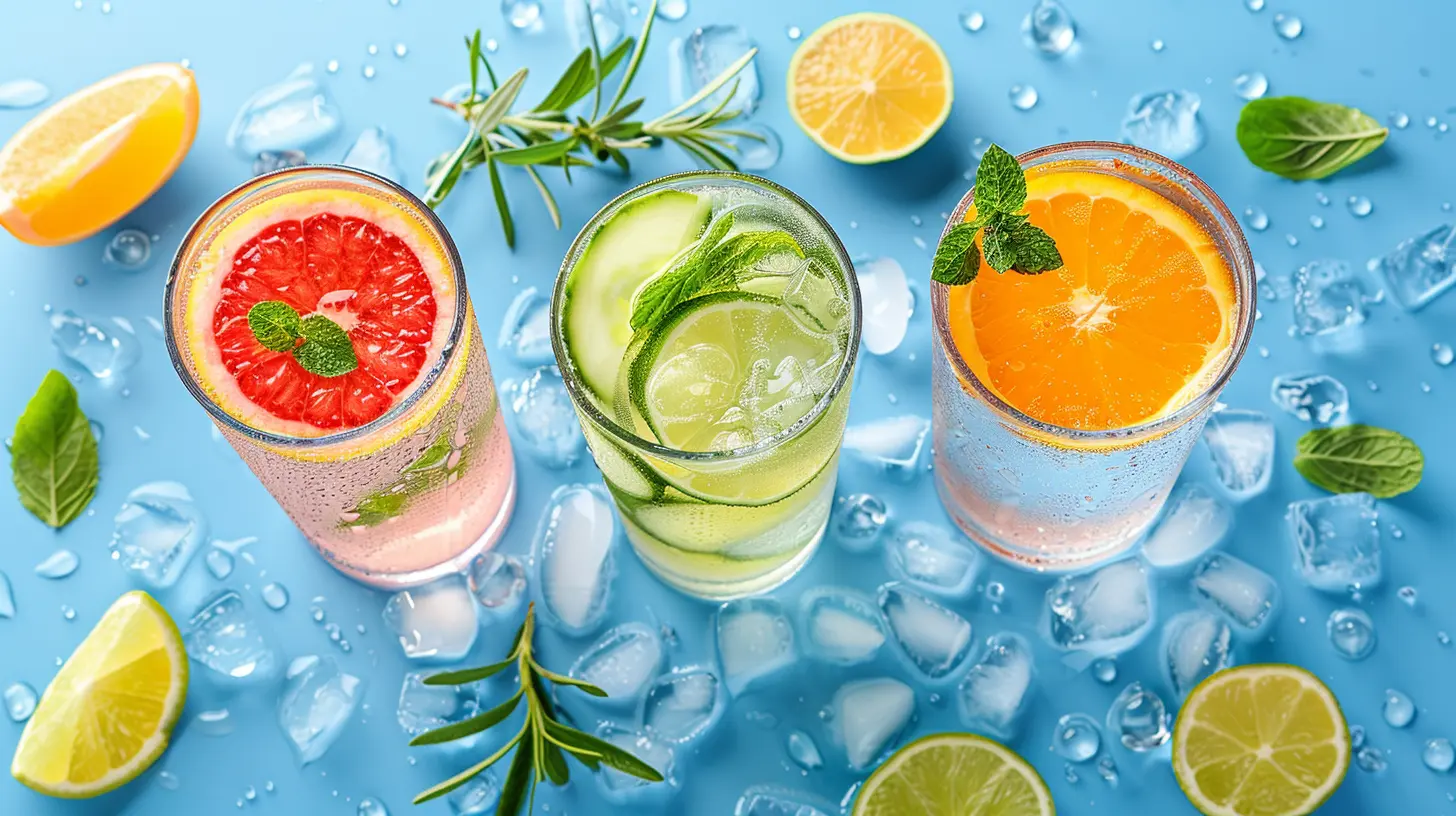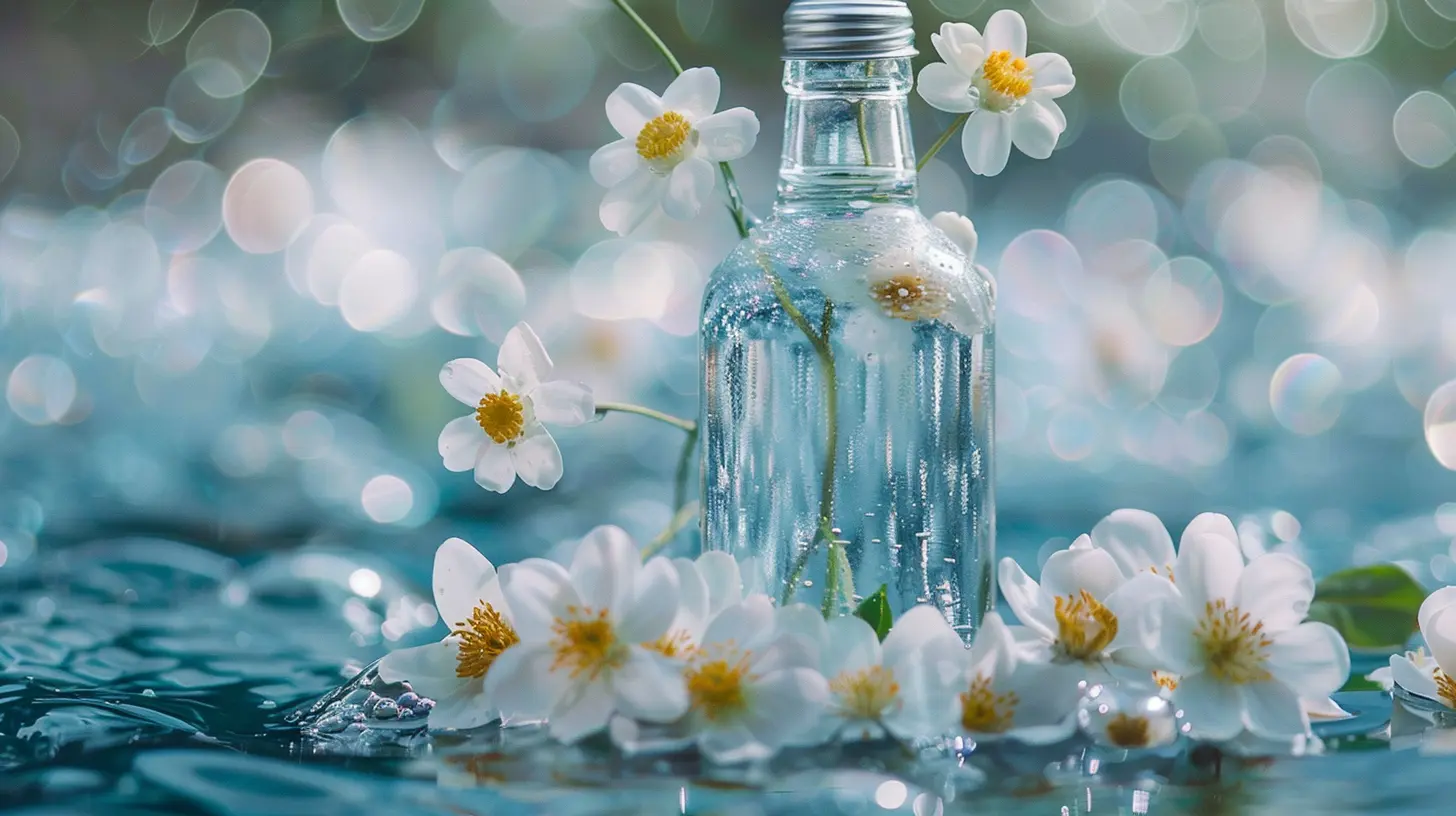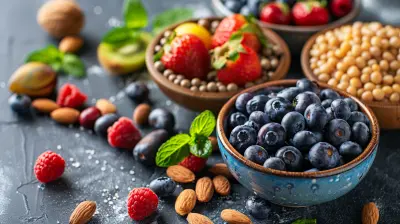How Climate Affects Your Hydration Needs
16 November 2025
Ever noticed how you feel thirstier on a sweltering summer day or mysteriously tired during chilly winter months? That’s not just in your head. The climate you live in—or are temporarily exposed to—plays a huge role in how much water your body actually needs. Hydration isn’t a “one-size-fits-all” gig. It’s more like a dance between your body and the environment, constantly shifting.
In this article, we'll break down how climate affects your hydration needs, what signs to watch for, and how to stay properly hydrated no matter where on Earth you find yourself.
What Exactly Is Hydration, Anyway?
Before diving into how the climate messes with it, let’s get on the same page about what hydration means. In simple terms, hydration is the process of providing your body with adequate fluids to maintain its basic functions—like regulating temperature, delivering nutrients, and keeping your joints lubricated.Your body is over 60% water. So yeah, when your hydration is out of whack, you feel it—headaches, fatigue, dry skin, dizziness, and even mood changes.
The Climate-Hydration Connection
Climate affects how much water you lose and, therefore, how much you need to replace. The more extreme the environment, the more your hydration needs tend to shoot up. Let’s break it down by the most common climate types and how each one messes with your body’s fluid balance.
1. Hot and Humid Climates: Sweating Buckets
If you’ve ever taken a walk on a humid summer day and ended up drenched in sweat, you already know where this is going. In hot and humid environments, your body works overtime to cool itself through sweating.Why You Need More Water
- Increased Sweat Loss: Your sweat doesn’t evaporate easily in high humidity, making your body sweat even more to cool down.- Electrolyte Depletion: You’re not just losing water—you’re losing vital minerals like sodium, potassium, and magnesium.
Tips to Stay Hydrated
- Drink water consistently throughout the day, not just when you're thirsty.- Consider electrolyte-enhanced drinks if you’re sweating a lot.
- Wear breathable clothing to reduce excessive sweating.
You’re like a sponge under a heat lamp—drying out fast and needing constant re-soaking.
2. Hot and Dry Climates: The Silent Dehydrator
Places like deserts or arid regions bring a different kind of threat. You might not feel like you're sweating, but your body is losing moisture quickly through what’s called insensible water loss—that’s moisture you lose from breathing and through your skin without even realizing it.Why You Need More Water
- Rapid Evaporation: Sweat vanishes so fast in dry air you don’t notice it.- Higher Respiratory Water Loss: You breathe more deeply and rapidly in dry heat, increasing water loss through your lungs.
Tips to Stay Hydrated
- Sip water regularly, even if you’re not thirsty.- Add hydration-rich foods like cucumbers, oranges, and watermelon to your diet.
- Use humidifiers indoors if you’re in a particularly dry area.
Dry heat is trickier because you don’t feel thirsty until it’s too late. It’s like dehydration sneaks up on you wearing desert camouflage.
3. Cold Climates: Dehydration in Disguise
Cold climates may not scream “hydrate!”, but that’s exactly the problem. You feel less thirsty, yet your body is quietly losing water in ways you may not realize.Why You Still Lose Water
- Respiratory Fluid Loss: Cold air is dry, and as you breathe, your body humidifies it—using your internal water stores.- Increased Urination: Cold temperatures can trigger a phenomenon called "cold diuresis," where your body tries to conserve heat by dumping excess fluid.
- Extra Clothing: Wearing thick layers can make you sweat without noticing.
Tips to Stay Hydrated
- Don’t wait to drink until you're parched; thirst is a late warning.- Warm herbal teas or warm water with lemon can help if cold water isn’t appealing.
- Monitor urine color—clear or pale yellow is ideal.
It’s like winter dehydration is playing hide-and-seek with your health—just because you’re not drenched in sweat doesn’t mean you’re in the clear.
4. High Altitude: Where the Air Is Thin and Dry
Headed to the mountains? The elevation comes with its own hydration challenges.Why Altitude Messes With Hydration
- Lower Oxygen Levels: You breathe faster to get more oxygen, which means more water lost via respiration.- Dry Air: Higher altitudes mean drier air, increasing water loss through your skin and lungs.
- Altitude Sickness: Symptoms like nausea can make it harder to eat and drink.
Tips to Stay Hydrated
- Increase fluid intake by at least 1–1.5 liters per day when adjusting to higher elevations.- Eat water-dense foods like soups and stews.
- Avoid excessive caffeine and alcohol, which dehydrate you further.
Think of it like this: climbing higher means you're going into dehydration mode on hard mode. The view may be stunning, but your internal water tank empties fast.
5. Urban Heat Islands: The Concrete Thirst Trap
Living in large cities adds another twist. Asphalt and buildings absorb and trap heat, creating "urban heat islands" that can make it several degrees hotter than rural areas.Why Cities Cook You
- Limited Air Circulation: Poor airflow means more sweating.- Pollution: Can increase respiratory water loss.
Hydration Tips for Urban Warriors
- Stay indoors during peak heat hours when possible.- Keep a reusable water bottle with you at all times.
- Opt for shaded routes and wear light-colored clothes to reduce heat absorption.
Cities are like ovens made of concrete—if you're not careful, you’ll be baked and parched by lunchtime.
Understanding Your Body’s Hydration Signals
Climate aside, your body does try to signal when it needs water. You just have to be tuned in.Look out for:
- Dry mouth or lips
- Headaches or lightheadedness
- Dark yellow urine
- Fatigue or muscle cramps
- Irritability (yes, dehydration can mess with your mood too!)
Listening to your body is like checking your car's dashboard—ignore the warning lights, and things can break down real quick.
Hydration Myths Busted
Let’s bust a few myths that might be messing with your hydration habits.“I only need to drink water when I’m thirsty.”
Wrong. Thirst is often a late-stage indicator. By the time you feel thirsty, you’re already mildly dehydrated.“Cold weather means less sweating, so less water.”
You may not see it, but you're still losing plenty of fluids—through breath, urine, and hidden sweat.“Sports drinks are better than water.”
Not unless you're sweating buckets or exercising intensely. Otherwise, they’re just overpriced sugary drinks.Best Drinks for Different Climates
Let’s make it practical. What should you sip depending on where you're hanging out?| Climate Type | Best Hydration Options |
|------------------|---------------------------------------------|
| Hot & Humid | Water + electrolytes (like coconut water) |
| Hot & Dry | Water + hydrating fruits |
| Cold | Warm teas, broths, lemon water |
| High Altitude | Water, herbal teas, electrolyte tablets |
| Urban | Water, smoothies, diluted natural juices |
Bonus: Hydration Hacks for All Climates
- Start your day with a glass of water. Your body dehydrates overnight.- Use apps or alarms to remind yourself to drink.
- Eat your water. Fruits and veggies can offer up to 20% of your daily hydration.
- Track your intake if you're prone to forgetfulness.
- Avoid diuretics (like excessive coffee or alcohol) when possible.
Final Thoughts
Hydration isn’t just about a magic number of cups per day—it’s about adapting to your surroundings and listening to your body. Whether you're chilling in a cold climate, sweating it out in the tropics, or hiking up a windy mountain, your water needs shift with the environment.So yeah, climate really does mess with your hydration. But with a few smart tweaks, you can stay fluid-balanced, energized, and headache-free—no matter what Mother Nature throws your way.
Drink up, your body will thank you!
all images in this post were generated using AI tools
Category:
HydrationAuthor:

Laura Hudson
Discussion
rate this article
1 comments
Sloan McVicar
Great article! Understanding how climate impacts our hydration is essential for maintaining health. Staying informed helps us make better choices for our bodies and adapt to changing environments. Keep it up!
November 28, 2025 at 5:41 AM


